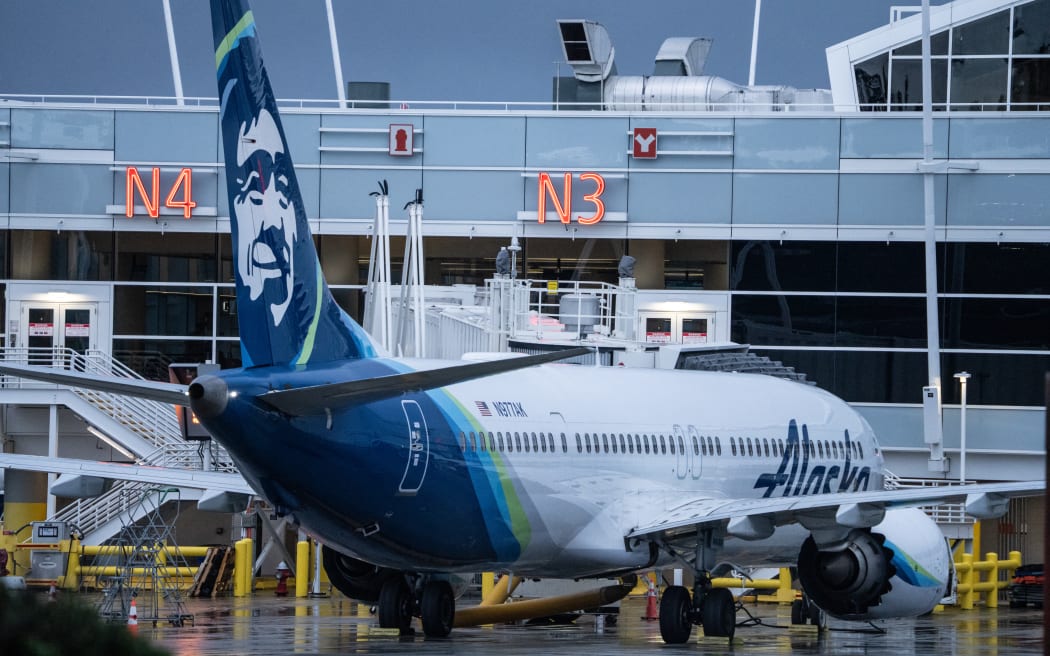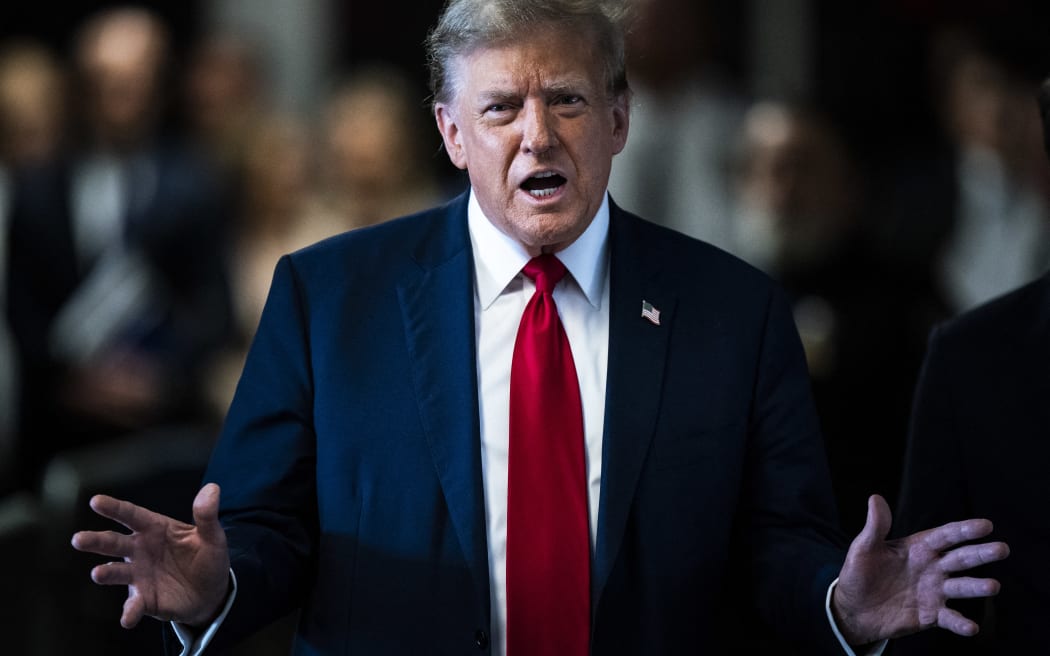‘Nobody’s coming to save us’ – How capitalism became a ‘vulture’

Economist and political journalist Grace Blakeley takes aim at capitalism and the checks on it, in her latest book Vulture Capitalism: Corporate Crimes, Backdoor Bailouts and the Death of Freedom.
In the book, Blakeley asserts that rather than failing, capitalism is working exactly as intended – allowing corporate and political elites to advance their own interests at the expense of the rest of us.
Blakeley spoke to Saturday Morning‘s Susie Ferguson about how instead of feeling powerless, there is a path to democratise the economy to make it better for everyone.
She said a common reaction to large-scale systematic problems was the belief the current system could be changed to help solve those issues.
“Perhaps there’s too much inequality, or traditional economic models haven’t accounted for the impacts of climate breakdown – that one way or another all you need to do is tweak the system and maybe try to change some policies, change tax rates…
“I really wanted to show that these things aren’t perversions of capitalism, they very much are inherent to the way that a capitalist system works.
“We have this assumption that states and markets – politics and economics – are these two separate spheres, and if you have more state spending for example, that means you have less market and vice versa.
“So there’s this idea that you can expand state spending in order to account for failures of the free market, and equally if the market isn’t functioning particularly effectively, because let’s say there’s monopolies, then you can change the structure of the market using political tools to make it work better.”
However, there was a fundamental flaw undermining that so-called balance, she claims.
“My argument is that within capitalist economies, politics and economics have always been merged, and actually there isn’t this clean separation that you might think that exists, in practice. And that just means that it’s very hard to use policies to try and change things.
“And a really good example of why this doesn’t work is just the massive lobbying power of large institutions that are able to use the state to meet their own interests. And I use a lot of examples of what this kind of fusion of political and economic power looks like in the book.”
One example she references is the controversy over how much Boeing executives knew about possible faults in their aircraft production lines.
Boeing faces increasing scrutiny, including in the US Senate, after a door fell off a new Boeing 737 Max 9 flown by Alaska Airlines broke, and two fatal crashes of its 737 Max 8’s in 2018 and 2019.
“If you look deeply into this case, the American state was really really deeply involved,” Blakeley said.
“Boeing was one of the biggest recipients of corporate welfare in the US at the time, it got loads of tax breaks and subsidies. Moreover a merger that had taken place with Boeing and another company had been facilitated by the American state, and then when you had the pandemic… that was used to pump even more public money into this massive multinational corporation which is a massive arms dealer, and really deeply imbricated with the American state.
“So it’s not like regulators are going to stand up and say ‘oh let’s regulate this more effectively’, because their interests are so aligned with those of this corporation.

“So my argument is we need to democratise all of these systems if we’re going to get accountability. We can’t just rely on the idea that the state’s going to protect us from the market or the market’s going to protect us from the state.”
Huge corporations can afford to lobby and apply pressure to shape regulation in their favour, which can have long-reaching repercussions, she says.
“That’s something that has been observed for a very very long time, is the way that pressures of competition actually end up undermining the very principle of competition. And you can try and enforce anti-trust here and there, as we’re seeing at the moment, but ultimately once the system has been captured by the largest and most powerful institutions, there’s really no coming back from that.
“And you see this with the case of big tech now, the regulatory structure has been so permissive for so long that there really is no going back. These corporations need to be transformed from within as well as changing the structure in which they’re operating.”
As a reaction, she said there had been a marked movement of big tech workers into unions, including workers from all levels of the tech industry, not just the lower ranks.
And that points to what Blakeley believes is the solution to the overall systemic problem – removing the disempowerment of a third party that should be represented more equally for the market-state balance to be effective – workers.
“Capitalist systems are planned systems – there’s always some level of central planning that takes place among big monopolistic corporations and large and powerful states working together, but the way that power pans out is determined by the balance of power in society.
“And that’s really what I call for in the book, is ordinary people organising in the place that they work, in their communities, on the streets, so basically try and take back control of these really powerful institutions.
“The big question we should be asking is not about the size of the state versus the size of the market, it’s whose interests are being accounted for when policy decisions are being made.”
Her book includes historical examples to show how big businesses and the state have long worked together “to determine who gets what”.
From the East India Company and businesses behind expanding empires to Ford, to today’s corporations, and that there has been a historical drift in toward excluding workers from the decision-making.
“This fusion between political and economic power is often used to advance imperial objectives, generally to the detriment of the poorest people on the planet,” Blakeley says.
She argues the neoliberal movement, which idealised an expanded free market control of the economy and reduction of state regulation, “was never really about freeing market. It was never really about reducing the role of state control. It was just about excluding workers from the planning process”.
“So planning continued as it had before, throughout the history of capitalism, it’s just that rather than workers, bosses and politicians, the workers were pushed out and it was just bosses and politicians that ended up planning.
“So under the guise of this free market shift, you see not necessarily a fall in the amount that governments are distributing and spending, you see big tax cuts for large corporations, you see big subsidies for big businesses, you see not deregulation, but a change in the kind of regulation you have, and the state becoming much more powerful in disciplining workers in disciplining protesters, not really a shrinking of the state at all, and a big expansion in monopoly power.
“The real terms of the debate [is] whose voice is actually heard in the decision-making processes, whether that’s in the decision-making process in a government or in a big multi-national corporation. And if people aren’t organised – whether that’s organised in unions or organised to make political change in political parties, then their voices are going to be ignored.”
“The bad news is that nobody’s coming to save us – and I think the kind of culture that we have, this individualistic culture, celebrity culture, kind of encourages us to think about politics as something where the majority of people are passive and there’s one active person who’s going to come in and save everyone – and this is common to progressives and it’s common to people on the right.”

She says it’s common to look for a ‘figurehead’, such as Donald Trump, who becomes a champion to take the place of our own participation in the system. But the system will only work if more people take part in guiding the process and decision-making actively.
“If we don’t organise and build strong and cohesive political movements, build strong and cohesive labour movements, build power in our communities, then politicians are simply not going to listen to us, because the forces that are working upon their decision-making processes remain the same. Corporate power will still be a massive factor in determining legislative outcomes, lobbyists will still have a huge amount of power and not just over politicians but over the media, and the media then influences politics.
“So the system is very cohesive, and unless we’re able to build counter-power of the kind that existed in the post-war period when unions were much stronger, then not much is going to change.
“Having said that, the moment that people start to actually take part in movements and try and really challenge the authority of those at the top is the moment that you start to see change snow-balling.”
According to the news on Radio New Zealand




